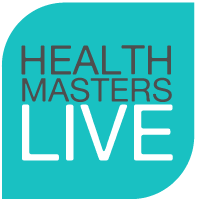Dr Theoharides is Professor of Pharmacology and Internal Medicine, as well as Director of Molecular Immunopharmacology and Drug Discovery, in the Department of Immunology at Tufts University School of Medicine, Boston, MA, USA. He is also Adjunct Professor at the Institute of Neuro-Immune Medicine, Nova Southeastern University, Tampa, FL, USA, as well as Director of Health Science Programs and Research, American College of Greece, Athens, Greece.
He was born in Thessaloniki, Greece, and graduated with Honors from Anatolia College. He received all his degrees from Yale University (BA, cum laude in Biology and History of Medicine, MS, MPhil, PhD, MD), and was awarded the Dean’s Research Award and the Winternitz Price in Pathology. He trained in internal medicine at New England Medical Center, which awarded him the Oliver Smith Award “recognising excellence, compassion and service.” He also received a Certificate in Global Leadership from the Tufts Fletcher School of Law and Diplomacy and a Fellowship at the Harvard Kennedy School of Government. He has been serving as the Clinical Pharmacologist of the Massachusetts Drug Formulary Commission continuously since 1986.
In Greece, he served on the Supreme Advisory Health Councils of the Ministries of Health and of Social Welfare, as well as on the Board of Directors of the Institute of Pharmaceutical Research and Technology. He Chaired an International Committee appointed by the Hellenic Ministries of Education and Health for the establishment of an independent medical school in Greece, and he is a member of the International Advisory Committee for the University of Cyprus School of Medicine. He is also the Director of Health Science Programs and Research for the American College of Greece. He is a member of 15 academies and scientific societies. He was inducted into the Alpha Omega Alpha National Medical Honour Society and the Rare Diseases Hall of Fame. He has received the Tufts Excellence in Teaching ten times, the Tufts Distinguished Faculty Recognition Award twice, the Tufts Alumni Award for Faculty Excellence, and the Dr. George Papanicolaou Award.
He has also been awarded an Honorary Doctor of Medicine from Athens University and an Honorary Doctor of Sciences from Hellenic-American University, as well as the 2018 Albert Nelson Marquis Lifetime Achievement Award. Dr Theoharides is a member of the American Academy of Allergy, Asthma and Immunology. In 2020, he was inducted in the World Academy of Sciences. For his humanitarian efforts, he was honoured with Boston Mayor’s Community Award, the 2018 Distinguished Humanitarian Award (Marquis Who is Who), and he was recognised as “Archon” of the Ecumenical Patriarchate of Constantinople.
Dr Theoharides first showed that mast cells, known for causing allergic reactions, are critical for inflammation, especially in the brain, and are involved in a number of conditions that worsen with environmental triggers, especially mould, and stress such as allergies, asthma, autism spectrum disorder, eczema, fibromyalgia, interstitial cystitis/bladder pain syndrome, mast cell activation syndrome, migraines, multiple sclerosis, myalgic encephalomyelitis/ chronic fatigue syndrome, psoriasis and Long-COVID syndrome.
He has published over 480 scientific papers (in journals such as JBC, JACI, JPET, NEJM, Nature, PNAS, Science) with 40,276 citations (h-index 96) and 3 textbooks of pharmacology. He has been placed in the top 5% of authors most cited in pharmacological and immunological journals. He was instrumental in the development of ibuprofen (Motrin, with Upjohn), cetirizine (Zyrtec, with UCB) and slow-release niacin (Niaspan, with Abbott).
